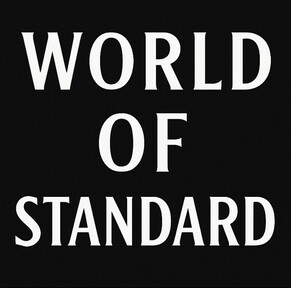Case Study: Private Investors or Banks
12.06.2025The business financing market is undergoing significant changes – are large private investors becoming the new 'banking' option? Traditionally, companies in Bosnia and Herzegovina have relied on banks for loans, but increasingly strict regulations and cautious lending policies are limiting access to credit. At the same time, large investment funds and wealthy individuals are seizing the opportunity to fill this financing gap. One example is global giant Blackstone, whose CEO has announced plans to invest up to $500 billion in Europe over the next decade—signaling the growing role of alternative sources of capital. This article explores how current and upcoming regulations are making traditional bank lending more difficult in BiH, and how private funds, companies, and individuals are stepping in as financiers of the domestic economy.
Regulation Tightens Banks and Stifles Lending
Banks in BiH operate under regulatory frameworks that are often stricter than international standards. For instance, the Republika Srpska region recently required a regulatory capital adequacy ratio of 12%, while the EU standard is 8%. A phased reduction to 10% is now planned by the end of 2026, with claims that this will boost lending without compromising system stability. These requirements, combined with the implementation of global rules like Basel III, increase the obligation for banks to hold additional capital and risk reserves. Large banks warn that new regulations may limit their ability to lend to riskier clients, such as small businesses, arguing this could hinder economic growth. In short, tighter regulation means banks must be more conservative—lending less and being more selective in choosing borrowers.
The negative effects of such regulations are already becoming visible. While BiH’s banking sector is well-capitalized, liquid, and profitable, it is not keeping pace with the financing needs of the private sector. Greater risk aversion and restrictive policies from foreign parent banks have resulted in most lending going to safer categories—such as consumer loans or state-owned enterprises. Meanwhile, lending to small and medium-sized enterprises (SMEs) is suffering, as confirmed by official statistics. According to the Central Bank of BiH, total loans to domestic sectors amount to about BAM 25.7 billion, but nearly half of that goes to households. Banks prefer lending to individuals because these loans are backed by regular salaries or mortgages, resulting in low default rates. “Banks prefer lending to individuals over businesses because they are risk-averse,” explains economics professor Predrag Mlinarević. Consequently, the business sector is left in the background due to perceived higher risk and the regulatory costs of such loans.
Private Funds and Investors Fill the Gap
As banks retreat from riskier lending, private investors and funds are stepping in as alternative sources of financing. This trend has been present globally since the 2008 financial crisis. At that time, banks—under pressure from new rules and tighter oversight—reduced lending to SMEs, leaving gaps in access to capital. Private investment funds seized the opportunity and began offering loans and investments to companies that could no longer obtain bank financing—essentially taking over the role of traditional lenders. As a result, this sector has experienced rapid growth: global assets under management by private credit funds have increased from around $300 billion in 2010 to over $1.8 trillion today. Projections indicate this figure could reach $2.6 trillion by 2029, illustrating how much market share these funds have gained in business financing.
Blackstone’s mega-fund is just the latest signal of these changes. According to the Financial Times, Blackstone co-founder Stephen Schwarzman emphasizes that Europe presents a massive opportunity, and the company plans to invest at least $500 billion in European projects over the next 10 years. This move reflects the confidence of major investors in the region’s potential, including Southeast Europe. For Bosnia and Herzegovina, this could mean an influx of fresh capital through company acquisitions, infrastructure investments, or credit lines outside the banking sector. Already, beyond institutional investors, wealthy individuals and large corporations are increasingly directly financing projects—whether by acquiring equity stakes, issuing private loans, or forming partnerships. There's also a noticeable rise in the so-called "shadow banking" sector (non-bank lenders such as microcredit organizations, leasing companies, and investment funds) in BiH, although it still makes up a relatively small portion of the financial system. To illustrate, the total assets of non-bank financial institutions (insurance companies, funds, microcredits) represent only about 6% of BiH’s GDP—meaning there is still considerable room for growth.
Banking vs. Fund-Based Financing Models
What are the main differences between bank financing and private fund financing? While both channels provide capital, the conditions and characteristics of these placements differ significantly:
Availability:
Banks apply strict criteria (client creditworthiness, collateral, business history) and often reject startups or riskier projects. Funds and investors may be more willing to finance unconventional or higher-risk ventures if they see potential for higher returns or growth. Thus, a company that doesn't meet banking requirements may still secure funds from a private investor willing to take on risk.
Speed and Procedure:
Bank loans involve approval procedures, regulatory checks, and hierarchical decision-making, which can be time-consuming. Private funds often act faster and more flexibly—the decision to invest may come down to the investor’s business judgment, without rigid bureaucratic hurdles. This means obtaining funds from a fund can be faster, which is crucial when capital is needed urgently.
Cost of Capital:
Bank loans usually come with lower interest rates (since banks source cheap deposits), whereas private capital demands a higher premium. An investment fund or individual investor will expect a higher return due to greater risk and the illiquid nature of their investment. In practice, interest rates or expected returns from private investments can be significantly higher than those of bank loans. For example, average corporate loan rates in BiH are in the single digits, while a private lender may demand double-digit returns or a share of the profits.
Flexibility of Terms:
Banks standardize contracts—requiring regular repayments, security instruments (mortgages, guarantees), and often restrict the use of credit. Private funds can tailor the financing structure to the company’s needs. They offer various forms—from traditional loans to mezzanine debt (a mix of debt and equity), to equity investments. Fund agreements may include deferred payments, variable interest rates, debt-to-equity conversions, etc., giving borrowers more flexibility.
Risks and Control:
With bank loans, the company retains ownership, and the repayment risk lies with the bank (up to the collateral's value). Default leads to asset foreclosure. In fund-based financing, if it involves equity investment, the entrepreneur shares ownership and may give up some control over the business. Also, private creditors may demand access to business information or a seat on the board. Systemically, a stronger role for non-bank financiers poses a risk of reduced transparency and oversight, as funds are not regulated as strictly as banks. However, diversifying funding sources can also reduce risk concentration—meaning that a banking sector crisis would affect firms less if they have alternative sources of capital.
Consequences for Small and Medium-Sized Enterprises (SMEs)
SMEs form the backbone of the BiH economy—they account for 99% of all companies, employ nearly half the workforce, and generate 44% of added value. Despite this, SMEs face the greatest challenges in accessing capital. Banks often view SMEs as riskier: small balance sheets, lack of collateral, and shorter business histories lead to stricter conditions or credit rejection. World Bank statistics confirm that private sector lending in BiH was just 43.5% of GDP in 2023—far below the EU average of around 77%. This implies that many companies remain underfinanced. The result is slower growth—SMEs cannot invest in modernization, hiring, or expansion due to insufficient affordable financing options.
In this context, private funds and investors can be a lifeline for promising SMEs that are "too small" to interest banks. Venture capital funds and business angels (successful individuals who invest in startups) are starting to appear in BiH, although still on a modest scale. They bring not only money but also mentoring and connections that can help small businesses grow. However, there’s another side to the coin: large global funds usually target larger projects and companies. Small firms are often off their radar—unless they are part of a value chain for a bigger investment. Therefore, capital market liberalization should be accompanied by support measures for domestic SMEs—for example, incentives for the creation of local venture capital funds, credit guarantee schemes, or facilitation of crowdfunding platforms. This would ensure that even the most vulnerable firms get a chance to access financing in the new, more dynamic financial landscape.
Capital Market Liberalization – Potential Benefits
Further liberalization of the capital market in BiH holds several potential benefits for the economy. Most notably, opening the financial market and aligning with European standards could attract more foreign investors. If procedures are simplified and the legal framework is stable, more domestic and international investors could participate in financing local businesses—whether through bond or equity purchases or direct investments. Competition between various sources of capital should lead to more favorable conditions: with more competitors, banks would be pressured to reduce interest margins or speed up procedures to retain clients.
For companies, a broader range of financial options means greater resilience. In a recession, when banks tighten credit, firms could turn to issuing corporate bonds or seek strategic investment partners. Liberalization and capital market development (including the stock exchange) would also enable the mobilization of domestic savings for productive purposes. Currently, the domestic stock exchange is shallow and illiquid, with a low number of transactions and modest market capitalization. Modernizing regulations and incentivizing companies to list on the exchange could encourage equity financing, reducing dependence on debt. This would particularly benefit mid-sized companies that have outgrown bank loans but are still too small to attract global funds.
Of course, liberalization also carries certain risks. It’s essential to establish adequate oversight of new financial players—to prevent abuse, predatory lending, or systemic risks from an unregulated “wild” market. Additionally, an influx of foreign capital can lead to takeovers of domestic companies; for small economies like BiH, it's crucial to strike a balance between attracting investment and protecting the domestic economy from potential monopolistic behavior by large funds. All in all, carefully designed liberalization, alongside strengthening the rule of law and regulation, could inject fresh capital into BiH’s financial system and spark a new investment cycle.
Conclusion
The financing of economic development in Bosnia and Herzegovina is at a crossroads: on one side are banks—the traditional pillars of the system—which, under regulatory pressure and increasing risk aversion, are becoming more cautious in lending; on the other side, alternative financiers are emerging—large investment funds, private companies, and individuals willing to invest where banks will not. This case study scenario suggests that the future may bring a hybrid model: banks will continue to play an important role, but they will no longer hold a monopoly on financing.
For Bosnia and Herzegovina, it is essential to harness the advantages of this trend—attract as many high-quality investments as possible while simultaneously developing the domestic capital market. This would ensure capital accessibility for all segments of the economy: from startups and SMEs to large infrastructure projects.
With the right policies, private investors and banks can act complementarily—increasing both the volume and speed of financing across the economy. Ultimately, the goal remains the same: to stimulate investment, drive growth, and create new jobs—regardless of whether the funds come from the banking sector or alternative sources.
All of this points to the fact that a liberalized, diversified financial landscape represents a real opportunity for faster development—if managed carefully and strategically.
Sources: The data and references cited in this text are drawn from current analyses and reports by central banks, financial institutions, and media, including Reuters, Nezavisne novine, the Central Bank of BiH, SME Finance Forum/IFC, Investopedia, Alter Domus, and others. These sources reflect the current state of financing in BiH and the global trends shaping it.
/ / /
"Standard Prva" LLC Bijeljina is a company registered in Bijeljina at the District Commercial Court in Bijeljina. Company’s activities are accountancy, repurchases of receivables, angel investing and other related services. Distressed debt is a part of the Group within which the company repurchases the receivables, which function and are not returned regularly.
Lawyer’s Office Stevanović is the leading lawyer’s office in the region with the seat in Bijeljina. The LO abbreviation represents Lawyer’s Office of Vesna Stevanović and Lawyer’s Office of Miloš Stevanović.
Contact for media press@advokati-stevanovic.com or via telephone 00 387 55 230 000 or 00387 55 22 4444.





